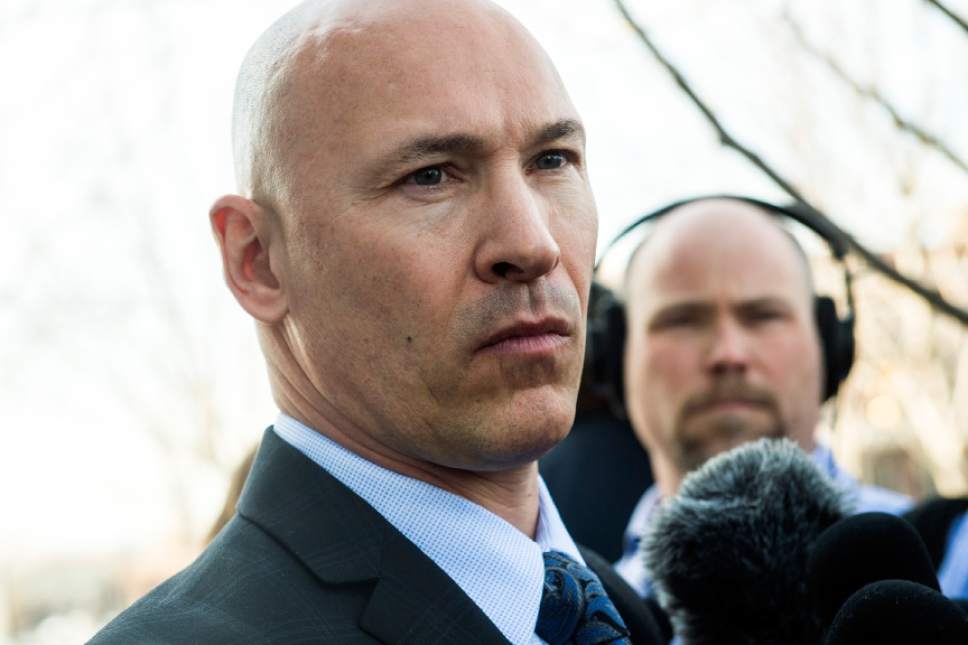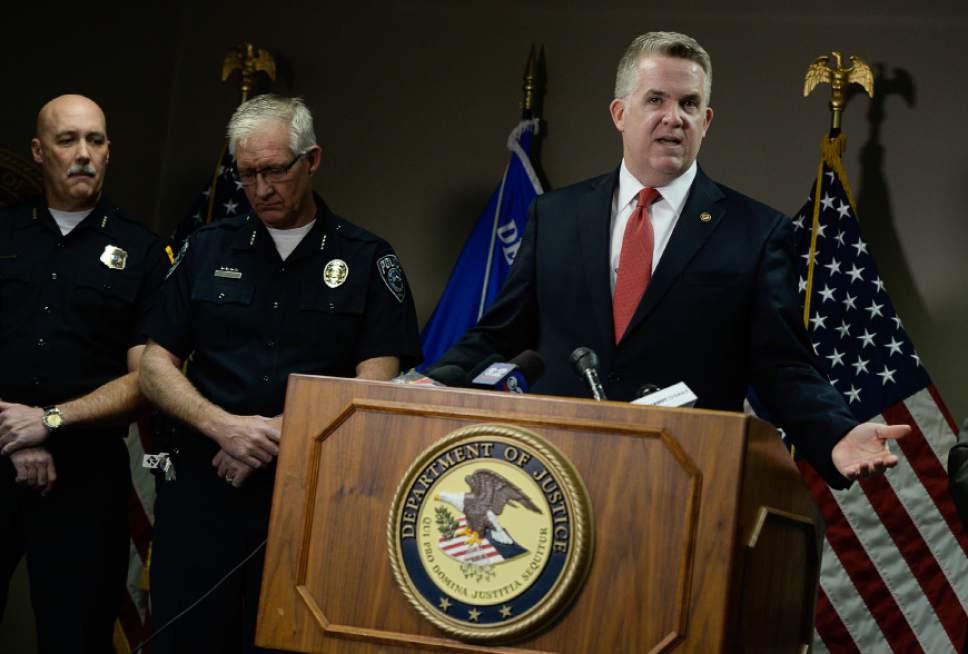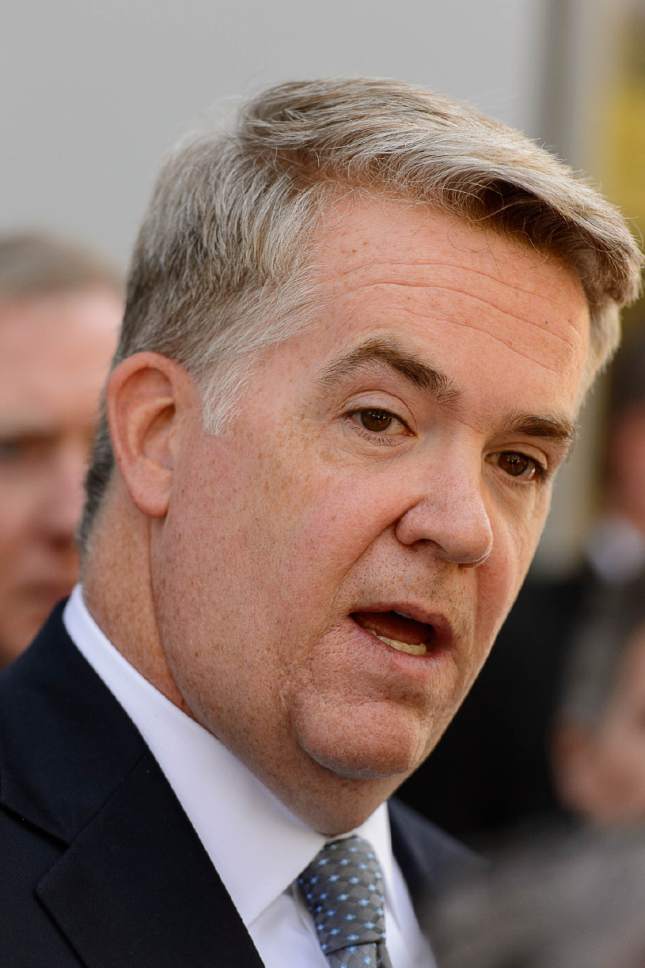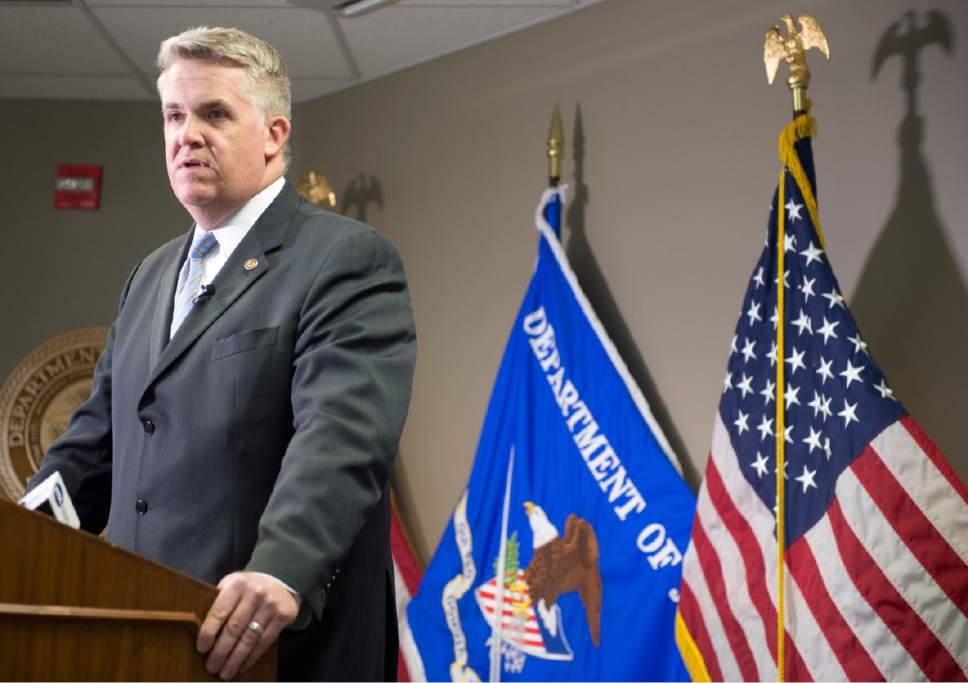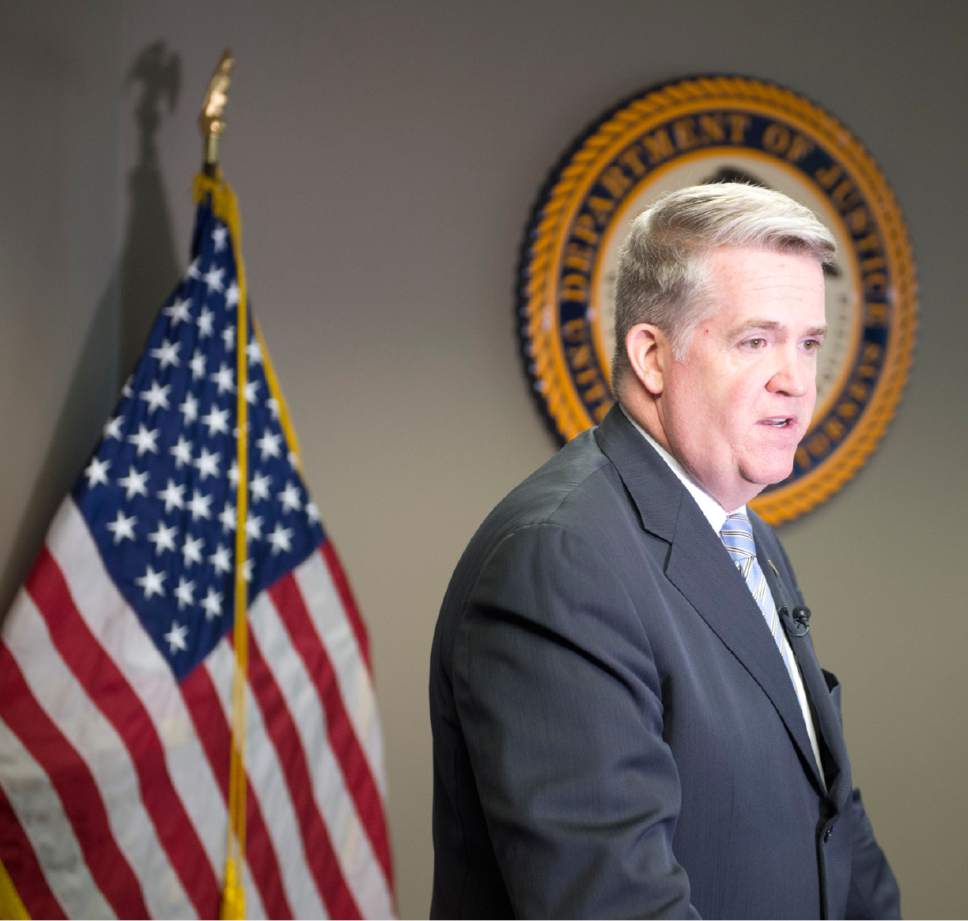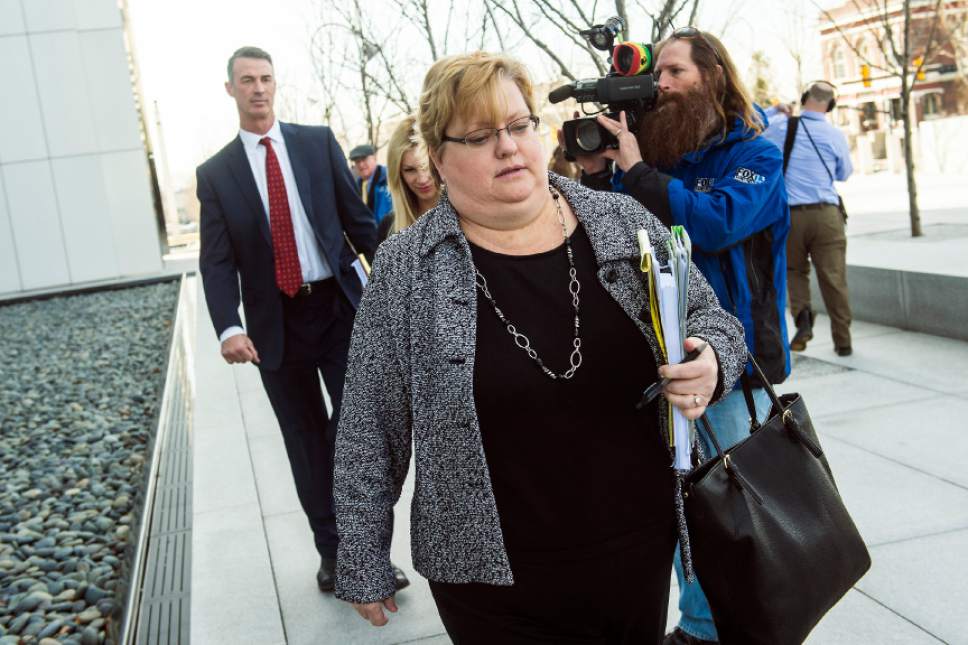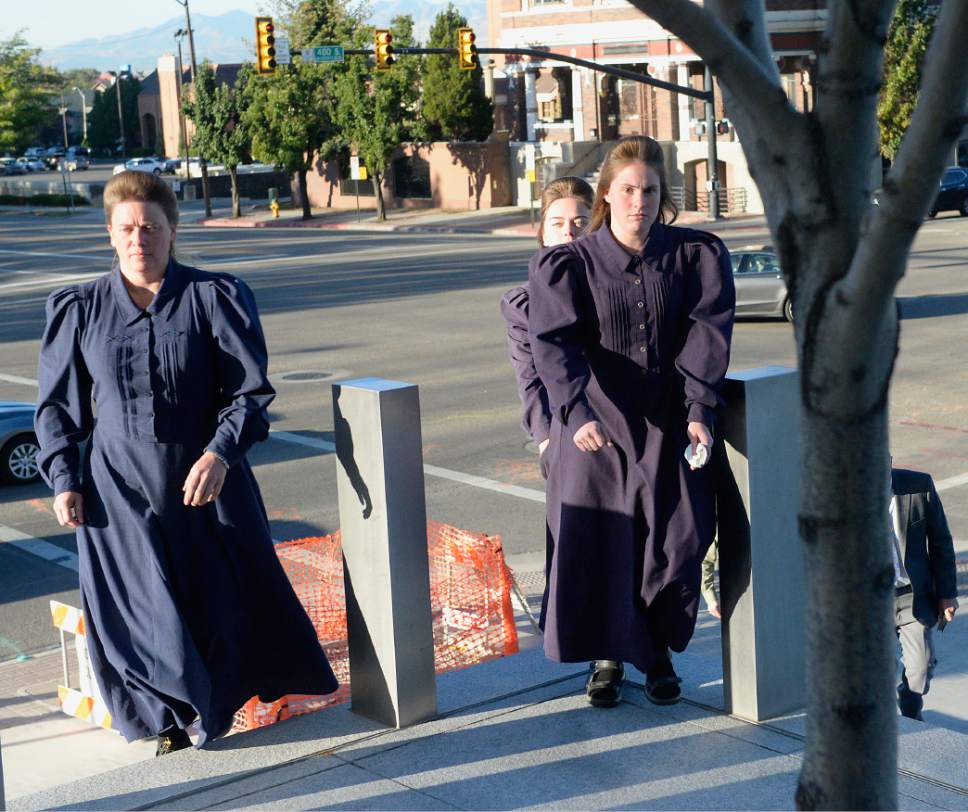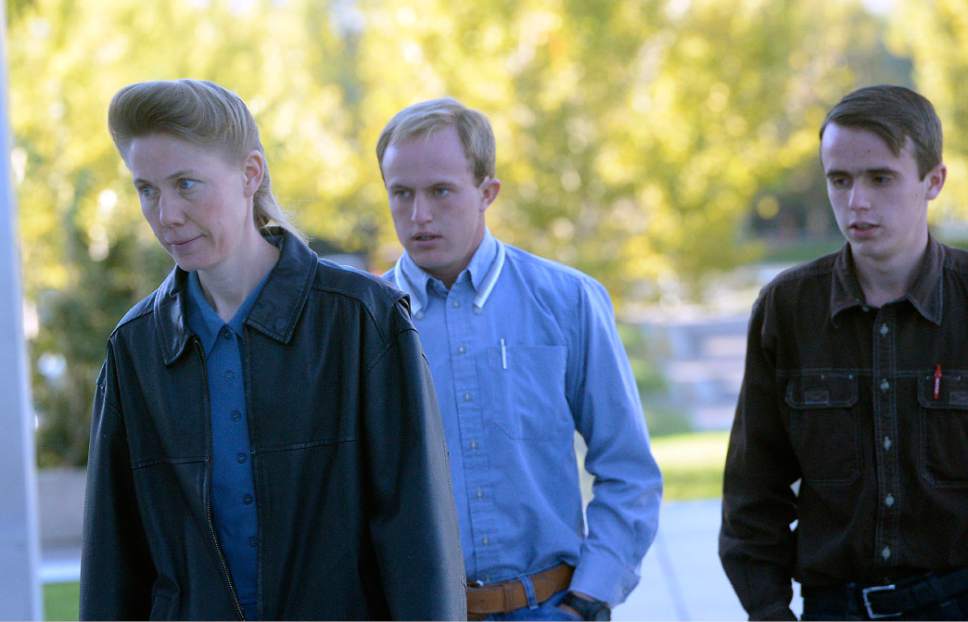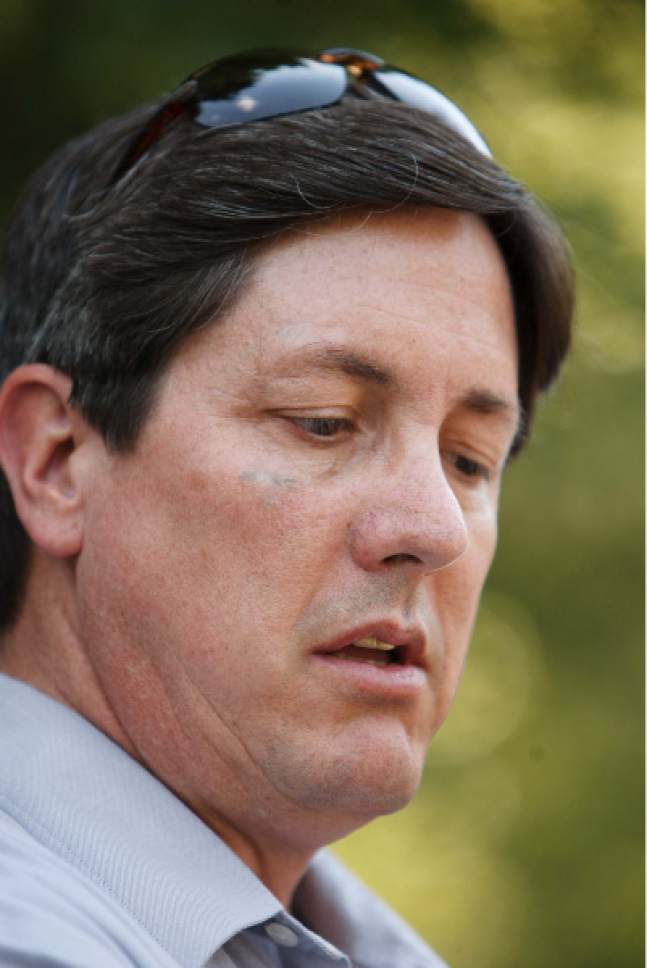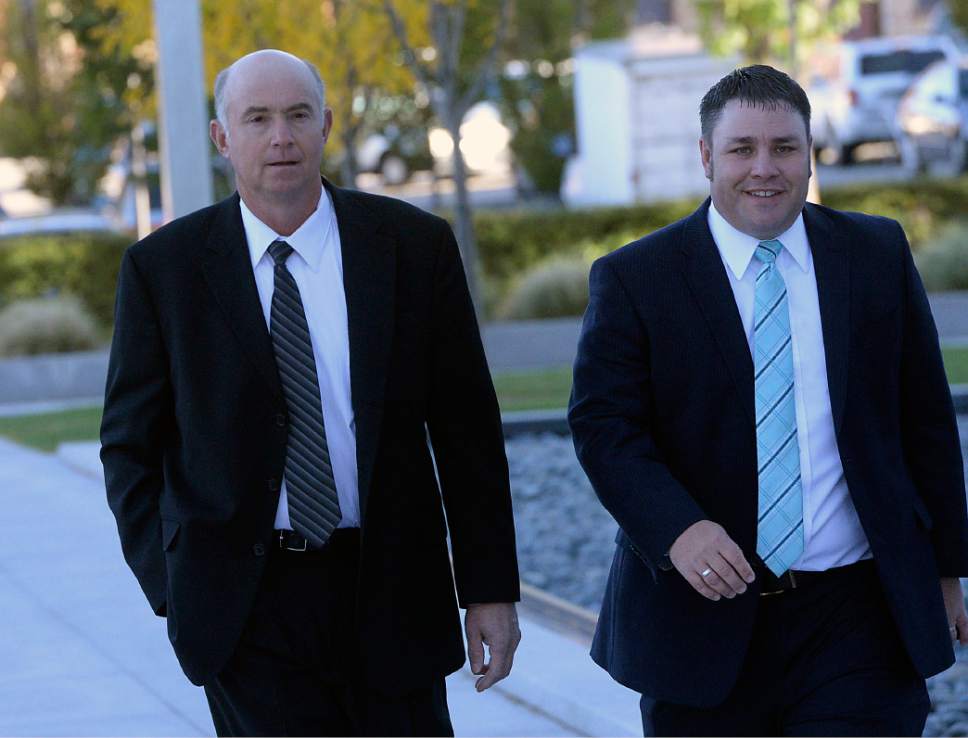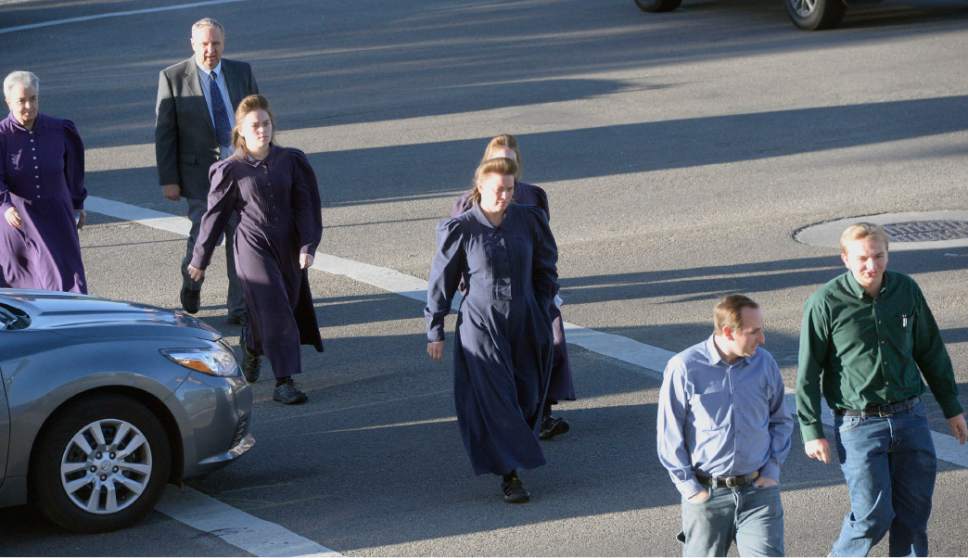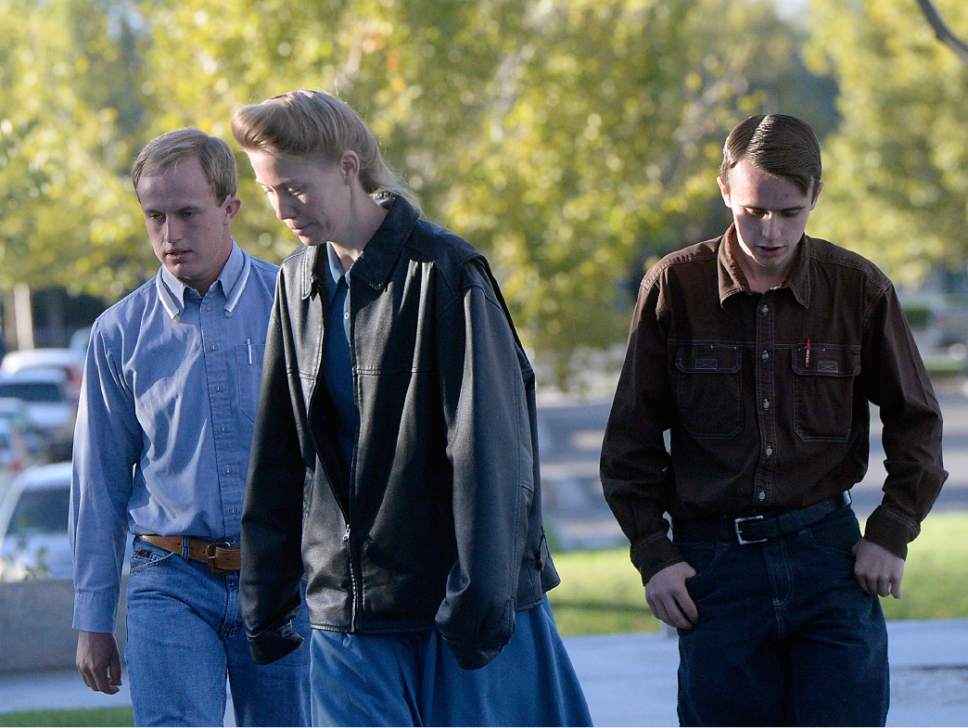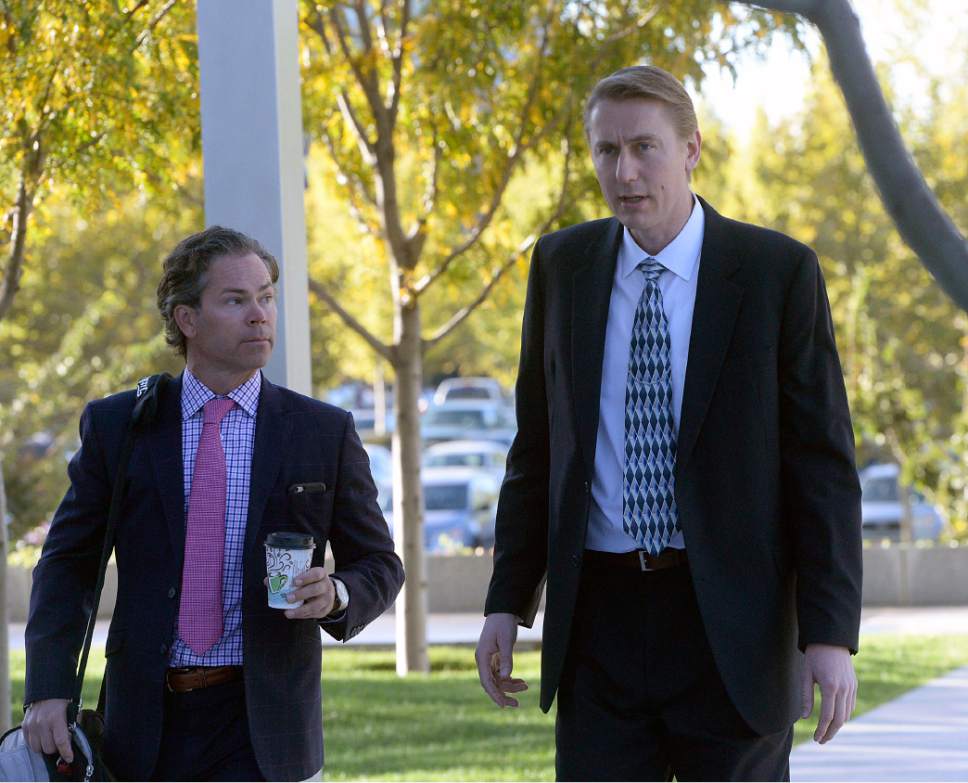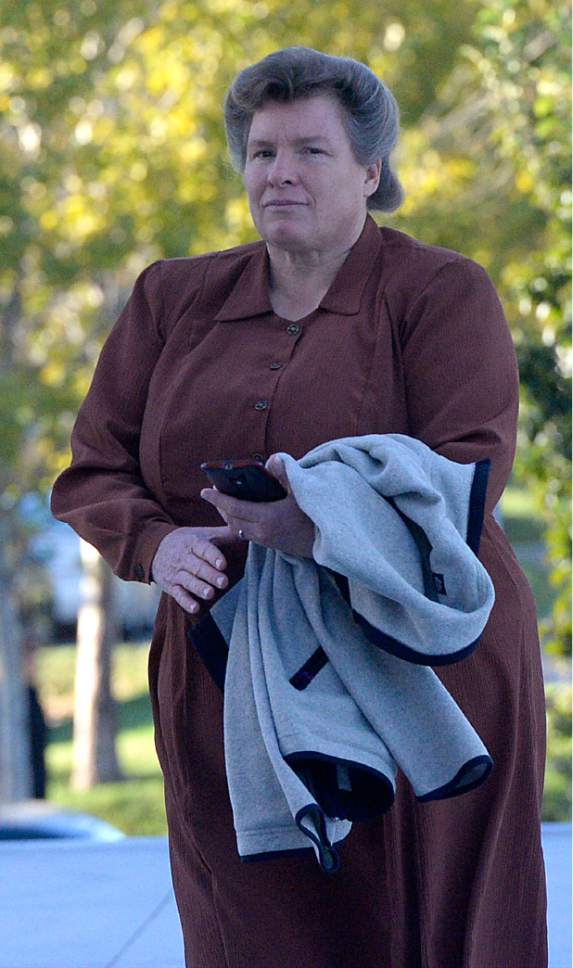This is an archived article that was published on sltrib.com in 2017, and information in the article may be outdated. It is provided only for personal research purposes and may not be reprinted.
Earlier this month, John Huber, the top federal prosecutor in Utah, visited St. George and met with a task force that investigated the polygamous Fundamentalist Church of Jesus Christ of Latter-Day Saints and their use of food stamp benefits.
Eight of the 11 defendants in the case had accepted or were in the process of accepting plea deals. Charges would later be dismissed against another defendant. Of those who pleaded guilty, the deals did not require those defendants to spend more time in jail, serve probation or pay restitution or significant fines. A similar offer is believed to have been made to one other defendant. One other defendant is on the run.
Huber, the U.S. attorney for Utah, later recounted that everyone in the room anticipated the outcomes would be different. Yet everyone felt the case had achieved a measure of success.
"It proved that there was fraud" in the FLDS towns on the Utah-Arizona line, Huber said, "and as a result of this case, I am confident that kind of fraud will not continue there."
But the resolutions have drawn criticism from former FLDS members and a private investigator who has written about the church. They say the lack of penalties will embolden the FLDS.
"To them, it's like God delivering them," said Sam Brower, the author of the book "Prophet's Prey," about the FLDS and its president, Warren Jeffs, who is serving a sentence of life in prison plus 20 years in Texas.
Brenda Nicholson, a former FLDS member who blogs about the sect, said while felony and misdemeanor convictions are life-changing events for many, they won't be for the FLDS defendants.
They won't lose their jobs because they already work for companies run by church members, she said, and if they need a bank loan, they can have other parishioners apply.
"I'm at a level of frustration where I feel it almost doesn't matter how much evidence they have," Nicholson said in an interview. "It won't result in anything strong enough to change what is happening."
Legal theory
A task force comprised of the FBI, the IRS and sheriffs deputies on both sides of the Utah-Arizona line have quietly investigated the FLDS for years. Huber acknowledged in an interview that of all the things the task force has examined, fraud within the Supplemental Nutrition Assistance Program (SNAP) — known to most as food stamps — had the most appeal.
Unlike other crimes FLDS members have been accused of, like sex abuse and underage marriage, a SNAP prosecution wouldn't depend on victim testimony. Prosecutors, Huber explained, could show a jury the electronic trail of SNAP debit cards being issued to one person but used by someone else.
Huber, a lifelong Utahn, also saw the case as a way to tackle something discussed casually, but never proven — that the FLDS commit welfare fraud.
"This is the first time in the history of Utah that theory or perception has been tested," Huber said.
In a separate interview, the lead prosecutor on the case, Robert Lund, said there was another reason for pursuing the case. One of the suspects was Lyle Jeffs, a full brother to the church president and who at the time of the investigation was the bishop of the FLDS community in Hildale, Utah, and Colorado City, Ariz.
"He was the one we wanted most to bring to justice," Lund said.
On Feb. 23, prosecutors unsealed indictments against the 11 defendants. Each was charged with one count of conspiracy to defraud SNAP and conspiracy to launder money. Prosecutors told reporters the fraud might have a value of $12 million.
Also that day, FBI agents executed search warrants on two Colorado City stores suspected of converting SNAP benefits to cash, Meadowayne Dairy and Vermillion Cliffs Produce, and some FLDS offices.
Brower, who has long advocated for more criminal investigations into the sect, told a reporter at the time, "This looks like the big one."
The defense
The prosecution was a lot of work for Lund and his team. First, they made detailed arguments about why three FLDS leaders named as defendants — Lyle Jeffs, another brother named Seth Jeffs and another former bishop named John Wayman — should be jailed pending trial. Lund contended they were flight risks and attached thousands of pages of FBI reports and old court documents showing how they aided Warren Jeffs' flight from the law in 2004, 2005 and 2006.
It's unusual for federal court defendants accused of white collar crimes to be jailed before trial. Judge Ted Stewart kept the three in jail for a few weeks after the indictments, then released them under a slew of conditions. None lived up to them.
Lyle Jeffs slipped off his ankle monitor in mid June and absconded. He's still at large.
Seth Jeffs and Wayman were re-arrested at the start of August. The GPS data from their ankle monitors showed they met in Hildale or Colorado City with another defendant — a violation of the terms of their release.
Meanwhile, attorneys for the 11 defendants were making their case. They argued the indictments should be dismissed because FLDS members had a religious right to donate their SNAP benefits to their church. All sides filed briefs back and forth, and Stewart held a hearing in October where Seth Jeffs testified about his beliefs.
Also in that hearing, a SNAP administrator testified there is no specific regulation addressing donations to a church.
Stewart upheld the indictments, in part because Seth Jeffs was the only defendant who was actually a SNAP recipient, but also because he found the prohibition on donating SNAP benefits to unauthorized people didn't unduly burden Seth Jeffs' practice of religion.
However, in a separate ruling, Stewart refused a prosecution request to instruct the jury that SNAP donations to a church are prohibited under the law. That was a question for the jury, Stewart ruled.
"That was a game changer," Huber said. "When we got the results of that motion, we did a serious reassessment."
Defense attorneys throughout the case had been comparing the FLDS donations to someone from a more mainstream church taking a plate of brownies to a church potluck. Without a firm statement from the judge that SNAP donations are illegal, Lund said, there was a risk jurors would have sympathy for the FLDS.
"Whenever do we prosecute people who are doing something that they think God requires them to do?" Lund said.
Agreements made
Lund and his team soon began offering plea deals to everyone except Lyle Jeffs.
Wayman and Seth Jeffs were allowed to plead guilty to one felony count of using SNAP benefits contrary to the law. They were immediately released from jail after entering their pleas.
The other defendants could plead guilty to a misdemeanor count of aiding and abetting SNAP fraud.
"I have never seen in 27 years of practice a federal prosecutor offer a misdemeanor after filing felonies," defense attorney Aric Cramer, who represented defendant Kristal M. Dutson, told The Tribune in December.
And in a move that's also rare, the prosecution did not ask Stewart to sentence any of the defendants to jail, serve probation, pay restitution or cooperate with prosecutors on any other cases.
Huber and Lund defend the deals. Wayman and Seth Jeffs served a total of seven months in county jails, which both the prosecutors described as "harder time" than they would have served in a federal facility.
The other defendants, Huber and Lund said, were more followers with facilitator roles. And it was unlikely they could have paid any restitution, the prosecutors said.
Besides, Lund said, that $12 million figure quoted early in the case included food that was purchased but actually went to needy people — just not people signed up for SNAP benefits. It wouldn't seem fair to seek restitution for that, he said.
Lund also contended that placing the defendants on probation would have been impractical because the defendants all live in such remote places. The most Stewart could have imposed was 12 months of probation in the misdemeanor cases.
"Would 12 months of probation have had any significant difference at all?" Lund said.
Lund also said there was a chance the case would have been separated into three trials, and that would have consumed a lot of resources in the U.S. Attorneys' Office.
The more important issue, Huber and Lund both said, was extracting guilty pleas that proved welfare fraud had occurred in Hildale and Colorado City, and deterring anyone from doing it again.
"We are pleased we are the first prosecution team to prove that theory," Huber said.
Huber said task force members told him they have seen more people in Hildale and Colorado City willing to speak with them since the indictments were issued.
Brower contends the sentences issued to the defendants will discourage FLDS members from risking alienation and that it has set law enforcement back 10 years.
"By not having any teeth in their prosecution, it's made a public spectacle in their ineffectiveness in prosecuting one of the most egregious criminal organizations," Brower said.
Nicholson said FLDS leaders have broken laws with impunity, and that she saw the SNAP case as a chance to stop that practice.
"I had hope that this was the area where one tough prosecution could make change," Nicholson said.
Lund detects former FLDS wanted the SNAP prosecutions to settle a slew of grievances they have. The law required him to consider only what the defendants were indicted for, he said.
Huber understands some people are disappointed in the outcomes.
"Not everyone has the experience or legal background to understand the implications of rulings made as the case is litigated," he said. "This case was never going to be the case many former FLDS members were hoping for."
Jim Bradshaw, the attorney for Wayman, has a different kind of criticism for prosecutors. He said the plea offers reflect the weakness of the cases and how the defendants never should have been indicted. Bradshaw pointed out that Lund was fighting defense motions to release Wayman and Seth Jeffs from jail right up until they pleaded guilty.
"There's every appearance that they were held in custody not for what they had done but for what they believed, and the system should never work that way," Bradshaw said.
Cases remain
Officially, the SNAP prosecutions are still underway. Defendant Preston Yates Barlow has yet to enter a guilty plea, though he is expected to do so soon, and the trial scheduled for Monday has been canceled.
Huber and Lund plan to continue to pursue a stiff sentence against Lyle Jeffs — both in the SNAP case and for absconding.
"His day of reckoning will come," Lund said.
A spokesman for the U.S. Department of Agriculture, which oversees SNAP, said in an email Friday that administrative proceedings are underway against the two retailers, Meadowayne Dairy and Vermillion Cliffs Produce, accused of trafficking in SNAP proceeds. In a USDA roster updated Jan. 10, Meadowayne was still listed as accepting SNAP benefits. Vermillion Cliffs Produce was not.
Huber said the task force investigating the FLDS is continuing its work, though he's not aware of any forthcoming charges.
"I don't have any plans to seek indictments against anyone in that community in the near future," he said.
Twitter: @natecarlisle


